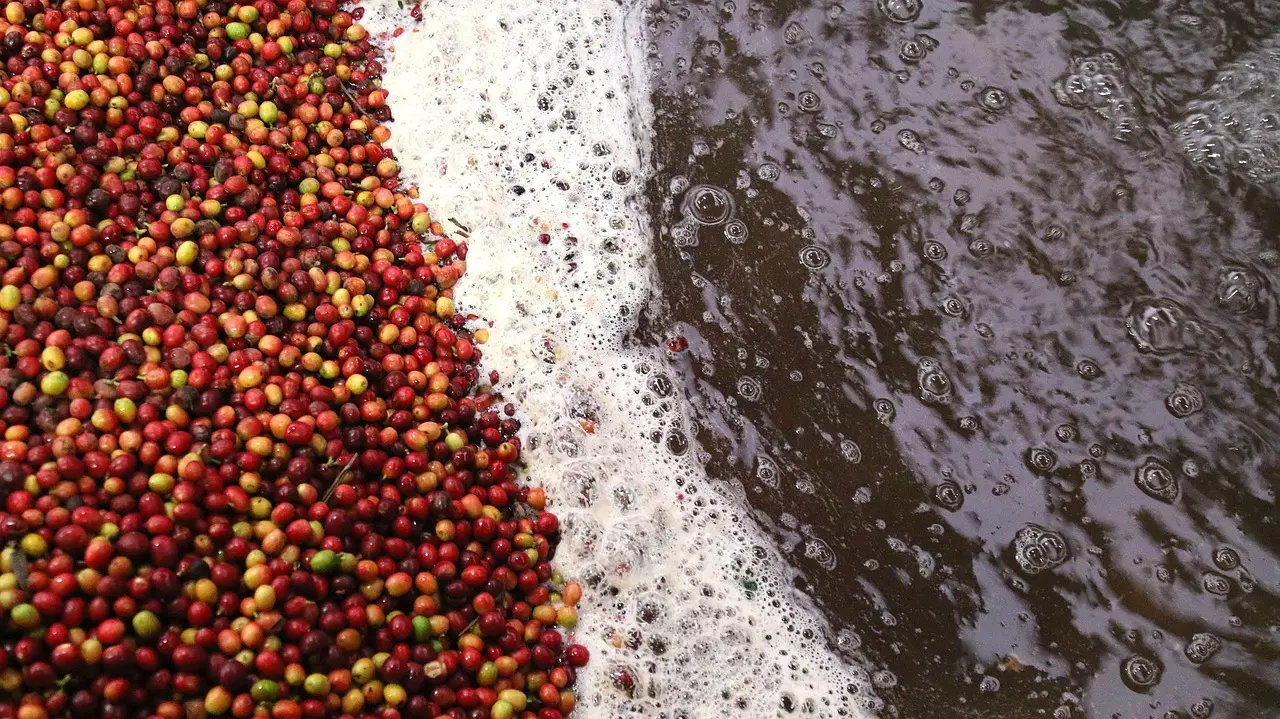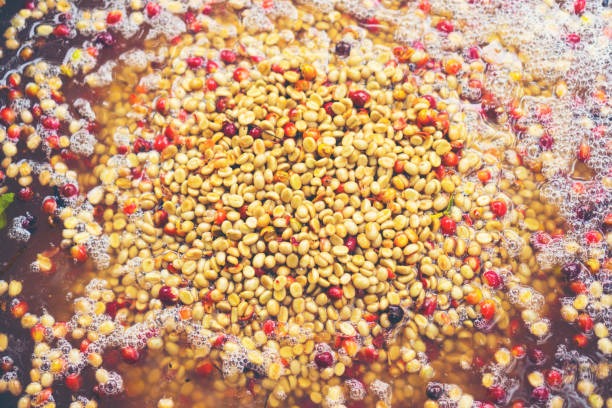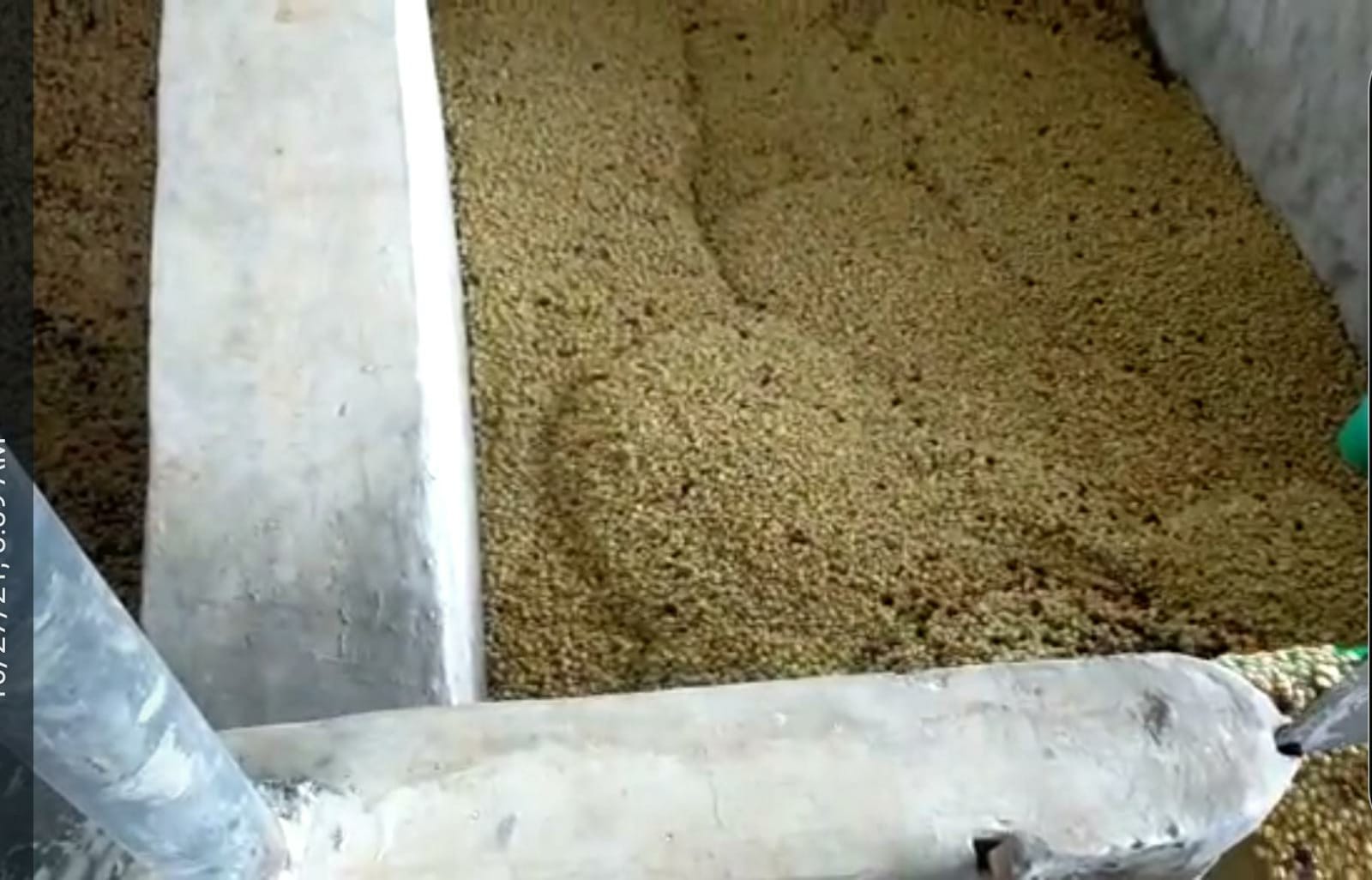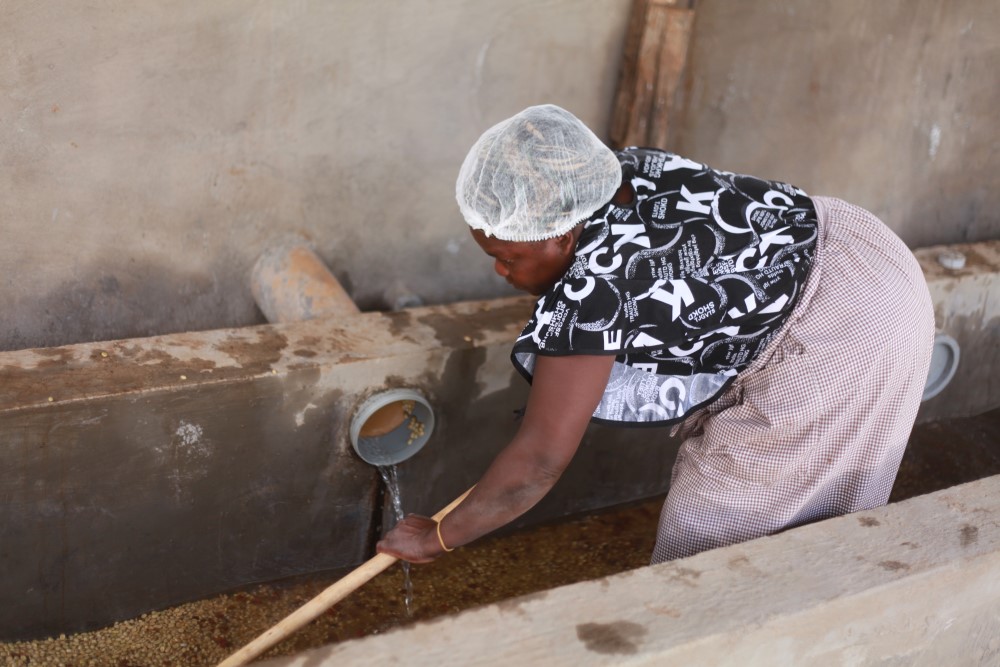Fermentation in Coffee Processing
Kenyan coffee kahawa is celebrated worldwide for its bright acidity, fruity notes, and complex flavor profile. But what makes it so unique? One key factor is fermentation, a crucial step in coffee processing that affects everything from acidity to aroma.
This article will explore the science behind fermentation in Kenyan coffee, the methods used, and how they shape the final cup.

Love Kenyan coffee? Discover our selection of premium, carefully fermented Kenyan coffee beans.
What is Fermentation in Coffee Processing?
Fermentation is a natural process that breaks down the mucilage (sticky layer) surrounding the coffee bean after pulping. This process occurs when microorganisms, mainly yeast and bacteria, consume the sugars in the mucilage, producing enzymes and acids that influence the coffee's flavor.
How Fermentation Affects the Flavor of Kenyan Coffee
Kenyan coffee farmers utilize different fermentation methods to develop the distinct flavors that make their coffee world-renowned.
- Acidity: Controlled fermentation preserves the bright, wine-like acidity Kenyan coffee is known for.
- Sweetness: The breakdown of sugars during fermentation enhances caramel and fruity sweetness.
- Body & Mouthfeel: Different fermentation times and methods impact how full-bodied or light the coffee feels.
- Aromatics: Floral, citrus, and berry notes develop during fermentation, giving Kenyan coffee its signature aroma.
Washed Fermentation (Wet Processing)

Washed fermentation, known as wet processing, is the most common method in Kenya.
In this technique, the coffee cherries undergo pulping to remove the outer skin before entering fermentation tanks filled with water for 12 to 48 hours, depending on temperature and humidity in the region.
During this period, natural enzymes and microorganisms break down the mucilage surrounding the beans. Once the fermentation is complete, the beans are thoroughly washed to remove any remaining residue before drying.
Dry Fermentation (Without Water)

Another method gaining traction is dry fermentation, which eliminates water use. Instead of submerging the beans in water, they ferment naturally in tanks, where the mucilage breaks down more slowly. This method generally takes 24 to 36 hours, allowing the beans to absorb more natural sugars and organic compounds produced during fermentation.
Some farmers prefer this approach because it uses less water, making it a more sustainable and environmentally friendly option.
Extended Fermentation (Double Fermentation)

Extended fermentation is a more advanced variation used in some Kenyan coffee factories, often called double fermentation.
This method involves an initial fermentation period, followed by a washing step to remove the loosened mucilage. Instead of proceeding directly to drying, the beans undergo a second fermentation phase before a final wash. This extended process allows for excellent flavor development, enhancing the coffee's complexity, increasing sweetness, and refining its acidity.
Many specialty coffee buyers favor this technique because it results in a layered and well-balanced cup with distinct notes of berries, citrus, and florals.
Fermentation Type | Washed Fermentation | Dry Fermentation | Extended Fermentation |
Process Fermentation Duration | Coffee beans are pulped and placed in water-filled tanks for fermentation before being washed and dried. 12–48 hours | Coffee beans are pulped but fermented without added water before final washing and drying. 24–36 hours | After the first fermentation, beans are washed and re-fermented before final washing and drying. 24–72 hours |
Flavor Profile | Clean, bright acidity with floral and fruity notes. |
Rich body, enhanced sweetness, deep fruit flavors.
| Complex, high sweetness, refined acidity, layered flavors. |
Common Characteristics | Produces a crisp, refined cup with clarity in flavors. | Sustainable method, resulting in a full-bodied and smooth coffee. | Enhances complexity and develops deep fruity and citrus notes |
This table highlights how different fermentation methods influence final taste and characteristics of Kenyan coffee.
Kenyan coffee consistently ranks among the best in global specialty coffee markets, and fermentation plays a significant role in this reputation.
Farmers and cooperatives have perfected fermentation techniques, ensuring consistency and quality that meet the high standards of specialty coffee buyers. Moreover, as experimental processing methods gain popularity, some Kenyan producers are exploring anaerobic and carbonic maceration techniques to create even more diverse flavor profiles.
Want to experience the magic of Kenyan coffee?
Try freshly roasted, expertly fermented beans today and taste the difference!
Understanding Fermentation During Coffee Processing in Kenya